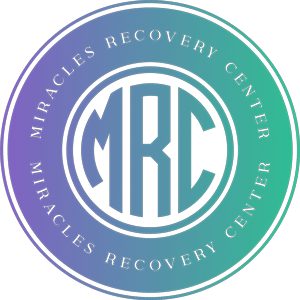In recent years, outpatient programs have become a popular choice for those seeking treatment for various health issues, including mental health conditions, substance abuse, and chronic illnesses. These programs offer a range of benefits that can be incredibly valuable for patients and their families. In this blog, we’ll explore the many advantages of outpatient programs and how they can fit into your journey towards better health.
Understanding Outpatient Programs
Outpatient programs are designed to offer treatment options that allow patients to maintain their daily routines while receiving care. These programs can include therapy, medical treatments, counseling, and support groups. Unlike inpatient programs, outpatient care does not require an overnight stay, making it a more flexible option for many individuals.
One of the key aspects of outpatient programs is the diverse range of services they provide. For instance, someone dealing with a mental health condition may participate in individual therapy sessions, group counseling, and family therapy, all while continuing to live at home and engage in day-to-day activities. This structure enables patients to receive comprehensive care without the need to pause their personal or professional lives.
Moreover, outpatient programs often offer a continuum of care, which can be crucial for long-term recovery. Patients may start with more intensive outpatient services, gradually transitioning to less frequent sessions as they progress. This step-down approach ensures that individuals receive the right level of support at each stage of their recovery journey.
Flexibility and Convenience
One of the main benefits of outpatient programs is the flexibility they offer. Patients can schedule treatments around their work, school, or family commitments, which makes it easier to integrate into everyday life. This convenience can be crucial for maintaining a sense of normalcy and reducing the disruption that more intensive treatment options can cause.
In addition, outpatient programs often offer various scheduling options, including evenings and weekends. For busy professionals or students, this flexibility means that they can receive the care they need without taking time off from their responsibilities. It’s a way to get help while keeping life as uninterrupted as possible.
Flexibility also extends to the types of treatments available. Patients can engage in different types of therapy that suit their schedules and preferences, whether it’s cognitive-behavioral therapy, art therapy, or even virtual sessions held online. This adaptability makes outpatient care suitable for a wide range of needs and lifestyles.
Cost-Effective Treatment
Outpatient programs tend to be more cost-effective compared to inpatient services. Since patients do not stay overnight, the associated costs are typically lower. This can make quality treatment more accessible to individuals who might otherwise be unable to afford it.
Expenses such as room and board are eliminated, lowering the overall financial burden on patients and their families. Insurance plans are also more likely to cover outpatient services, making them a more viable option for those seeking comprehensive care without significant financial strain.
Additionally, the cost-effectiveness of outpatient programs doesn’t mean a compromise on quality. Many outpatient facilities offer high-caliber care, staffed by experienced professionals who are adept at providing effective treatment. This balance between cost and quality ensures that more people have access to the support they need.
Support Systems and Community
Outpatient programs often include access to various support systems such as peer groups, family therapy, and community resources. These elements provide a robust support network that can be vital for recovery. Feeling connected and supported by others who understand your journey can significantly enhance the healing process.
The sense of community built through outpatient programs can be tremendously empowering. Group therapy sessions allow individuals to share their experiences, gain insights from others, and build lasting connections. These relationships can become a crucial part of one’s support network, offering encouragement and motivation.
Family involvement is also a significant aspect of outpatient care. Family therapy sessions can help loved ones understand the challenges faced by patients, fostering empathy and communication within the family unit. This not only supports the patient’s recovery but also strengthens family bonds.
Personalized Care
Another advantage of outpatient programs is the ability to receive personalized treatment plans. Professionals can tailor the care to fit the unique needs of each patient, whether they require therapy sessions, medication management, or specialized treatments. This individualized approach ensures that each aspect of the patient’s condition is addressed comprehensively.
Personalized care means that patients are not treated with a one-size-fits-all approach. Instead, they undergo thorough assessments to identify their specific needs and challenges. This allows for the creation of a treatment plan that is uniquely suited to their situation, increasing the likelihood of successful outcomes.
As patients progress, their treatment plans can be adjusted to reflect their evolving needs. This dynamic approach ensures that care remains relevant and effective throughout the recovery journey. Regular evaluations and feedback are integral parts of this process, allowing for continuous improvement and adaptation.
Encouraging Long-Term Success
Outpatient programs are designed to equip patients with the tools and skills needed for long-term success. By allowing patients to practice new coping strategies in their real-life environments, these programs help ensure that individuals are better prepared to handle challenges and maintain their progress over time.
For instance, patients learn techniques to manage stress, build resilience, and avoid relapse triggers. Regular follow-up sessions provide continued guidance and support, reinforcing positive behaviors and addressing any ongoing issues. This ongoing engagement is crucial for sustaining long-term recovery.
Furthermore, the real-world application of learned skills is a cornerstone of outpatient care. Patients practice what they have learned in their daily lives, receiving immediate feedback from their therapists and peer groups. This hands-on experience helps build confidence and reinforces their ability to stay on track.
Embracing the Benefits of Outpatient Programs
Outpatient programs offer a flexible, supportive, and effective approach to treatment that can be tailored to meet individual needs. Whether you’re dealing with mental health challenges, substance abuse, or a chronic illness, these programs provide the tools and resources needed to make meaningful progress in a way that fits your lifestyle. If you or a loved one is considering treatment options, an outpatient program might be the right choice to help navigate the path towards a healthier, happier life.





